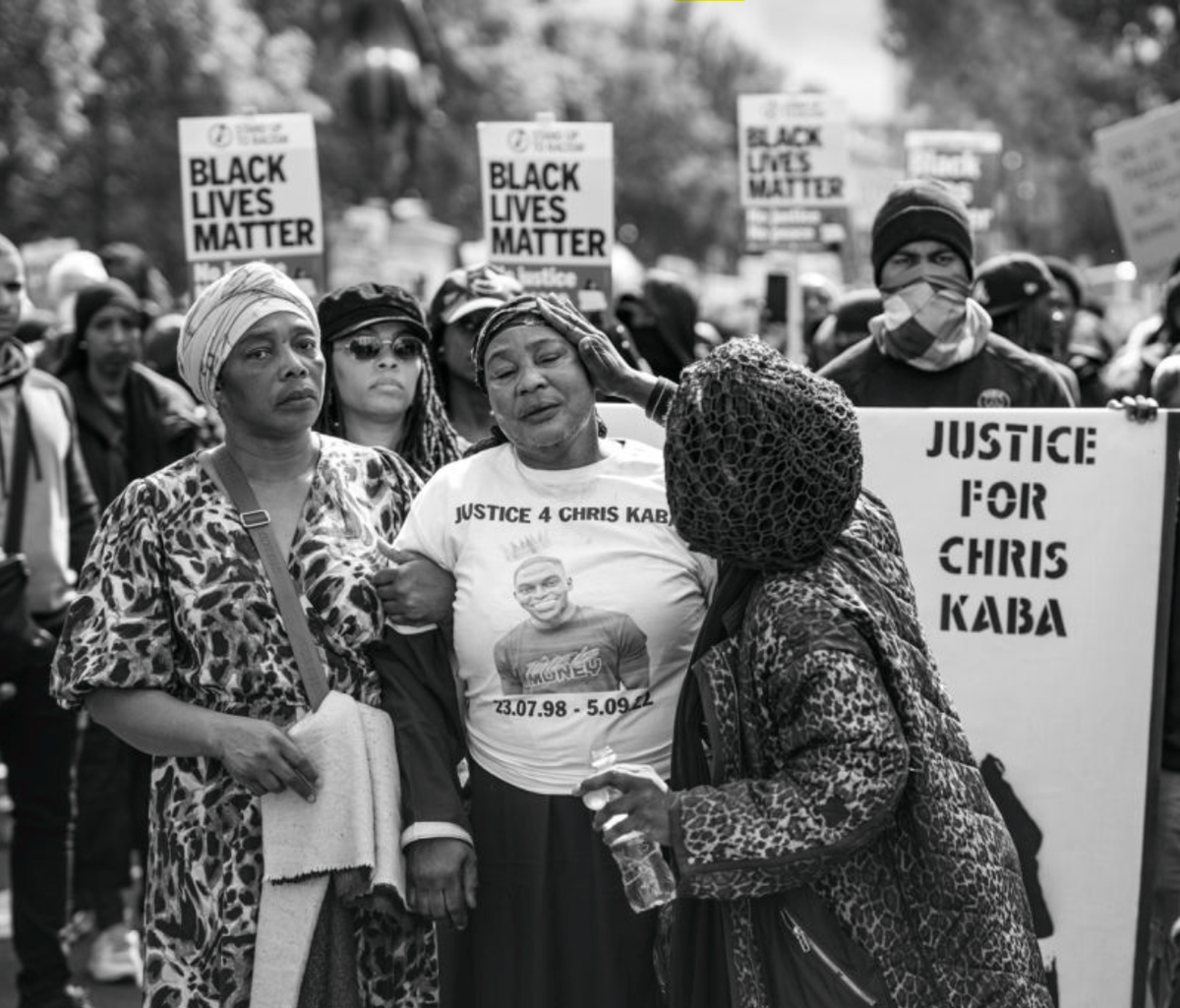‘We must never accept this as normal’: The Killing of Chris Kaba

By Emily Holdcroft, BA Social Anthropology
On Monday 5th September 2022, Chris Kaba was shot and killed by a MET police officer, only known as NX121. Just 24 years old, Kaba leaves behind a pregnant fiancee, and the grief for his unjust death felt widely across his family, community and beyond.
The MET police claim the car was linked to a firearms incident that had happened the previous day, and thus officers were instructed to follow the registered vehicle when coming across it. Since the shooting, it has been confirmed there was no firearm found in the vehicle and that Chris Kaba was never a suspect. Although many media outlets falsely reported a ‘high speed police chase’, the latest statement read at the opening of the inquest into Kaba’s death contradicts these claims. The statement read ‘The officers did not activate their lights or sirens while following the vehicle. The intention was to use a ‘enforced stop extraction’ on the Audi.’ This suggests Kaba was not even aware that he was being followed by police until ‘contact was made’ with officers in a marked ARV.
There has been no specification on what occurred between this interaction and the decision to fire a single shot through the front windscreen of the vehicle. He was pronounced dead, from a wound to his head, at 12.16am on Tuesday 6th September 2022. After finally being able to view the body camera footage, Kaba’s family and those waiting for justice have many unanswered questions, but for the time being have stepped back from the public light to be able to deal with the mental weight of the ongoing investigation.
After protests and outrage from the families and those supporting their fight for justice, the officer that killed Kaba was suspended but has not yet been charged, with the MET police stating there will be a six to nine month wait for the investigation to be completed. The family highlighted how it took over a week for just the results of the forensic examination of the car to reach them. With the police policing themselves, Kaba’s family have well-founded anxieties around whether the full truth will be revealed. After the shooting of Azelle Rodney in 2005, the MET review of its use of the ‘hard stop’ tactic, involving the interception of vehicles in confrontation of the suspect, stated that the practice should be brought to an end , yet after the inquest into Mark Duggan’s killing, it was highlighted that this recommendation had never been followed. The same method of a forcible stop was used on Kaba.
In the campaign led by Kaba’s cousin, Jefferson Bosela, the family have stated new demands for the Independent Office for Police Conduct (IOPC) including wanting answers surrounding whether the officers knew it was Kaba inside the vehicle and confirmation that the officer who shot him will be interviewed without delay. In addition, they have stated they expect a charging decision within weeks, not months. Speaking on the investigation, Bosela has said, ‘An urgent decision on criminal charges is critical for this family and many others to have faith in the system that is supposed to bring them justice’.
As Kaba’s family and many others have spoken about, the actions of the MET in using such fatal violence against an unarmed man; in addition to their deeply unsatisfactory reaction after the killing, only highlights further the continuing institutionally embedded racism. Kaba is one of the many young black men to lose their life at the hands of the police, others including Dalian Atkinson, Rashan Charles, Edson Da Costa, Darren Cumberbatch, Shane Bryant, Nuno Cardoso and Kevin Clarke. All these men died in contact or custody with the police in the last five years, yet the officer who was charged with Atkinson’s murder in 2021 was the first officer to be convicted with manslaughter as the result of police contact in more than 30 years. Bosela’s worries surrounding the integrity of legal processes, speaks to the reality of justice often never served in BIPOC communities; as made starkly visible in the lack of justice for the previously named victims. In addition, heavily racialised databases such as the ‘gangs matrix’, containing data of black children as young as twelve, as well as the recently revealed strip-search of child Q, bring to light the ever increasing brutality of policing systems that seep into every aspect of life, particularly for Black communities.
Many on social media have also drawn a stark comparison between the instant arrest of those speaking, or simply showing, anti-monarchist sentiment publicly. In a similar time period, Maringela, a 22 year old woman was arrested for holding a sign reading ‘Fuck imperialism, Abolish Monarchy’, yet no-one has been arrested for shooting Kaba. The drastically contrasted prioritising of action by the police only speaks further to a system that works to perpetuate neo-colonial control as highlighted by critiques from community resistance groups Copwatch and Forever Family. As many have voiced online, the heckling of King Charles holds more value, and incites a stronger reaction, than the state killing of a Black man in the UK today.
While Kaba’s family continue the wait for justice, they continue to organise and campaign with the wider community through conferences, sharing information, petitions to pressure action and providing spaces to remember and honour Chris Kaba. Bosela’s words aptly summarise the devastating gravity of Kaba’s death, ‘How can a young man, sitting in a car, unarmed, be shot in the head by police in London in 2022? (…) We must never accept this as normal.’
Photo credit: Misan Harriman



